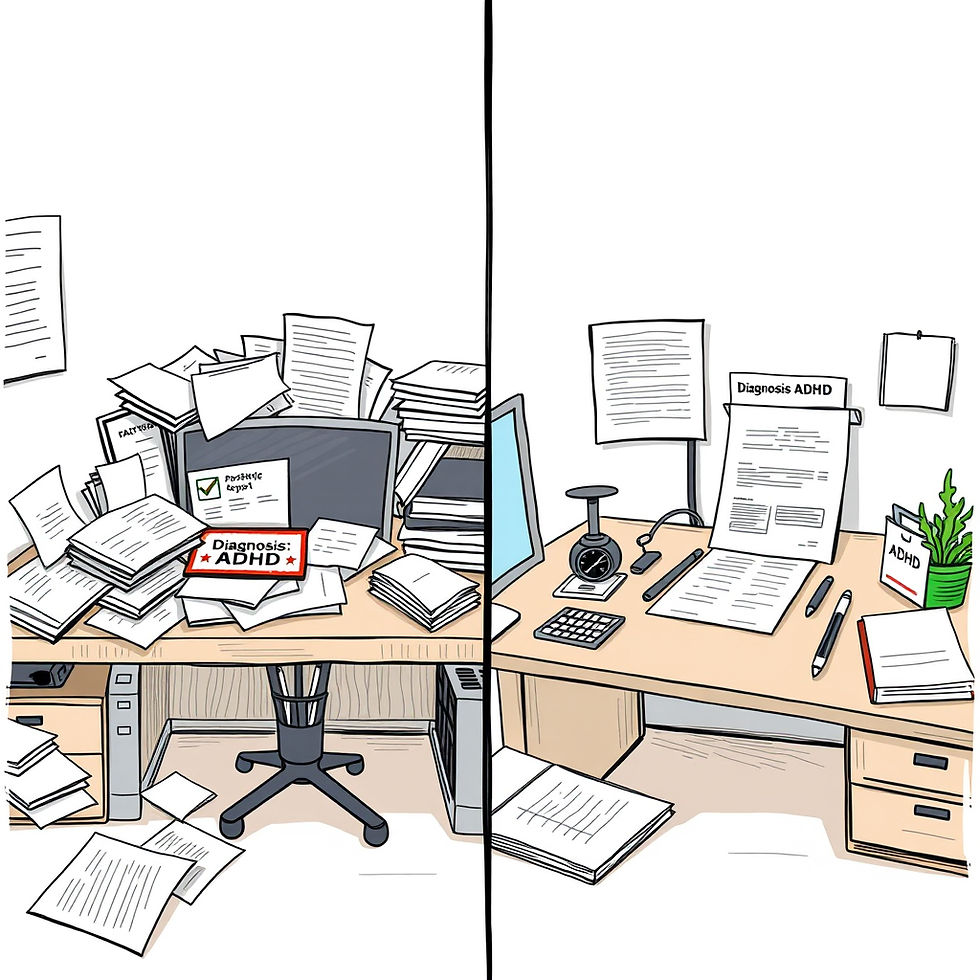What Makes a Psychological Assessment ‘High Quality’? 5 Things to Look For
- Daniel Steinberg, PhD

- Aug 5, 2025
- 2 min read

You’ve probably seen it: online “assessments” that promise instant ADHD diagnoses after a five-minute quiz.
Or clinics that offer a one-hour screening and call it a comprehensive evaluation.
Let’s cut through the noise. A high-quality psychological assessment isn’t just longer or more expensive—it’s better structured, better reasoned, and better documented.
Here are five signs you’re getting something clinically sound, not clinical theater.
1. It Starts with a Structured Clinical Interview
A real evaluation begins with a diagnostic interview, not just a survey. This isn’t casual conversation, it’s a systematic assessment of your history, symptoms, and functioning across time and settings.
High-quality evaluations look for patterns and rule out other explanations. They don’t rubber-stamp your self-report.
2. It Uses Validated Measures, Not Internet Quizzes
Anyone can take an online quiz. But only validated, standardized assessments offer reliable, norm-referenced data.
Think:
ASRS v1.1
Brown Executive Function Scales
D-REF Adult
Performance-based tools like QbCheck
If your evaluator isn’t using empirically supported instruments, you’re not getting a defensible diagnosis.
3. It Includes Rule-Outs, Not Just Rule-Ins
ADHD, anxiety, depression, trauma, executive dysfunction can look similar on the surface.
A quality assessment doesn’t just confirm your hypothesis; it tests alternatives.
You want an evaluator who’s willing to say, “It’s not ADHD. It’s this.” Or, “It’s both, and here’s the evidence.”
4. The Report Is Detailed, Specific, and Actionable
A strong report isn’t just a diagnostic label. It’s a clinical tool, designed to help you (and your providers) take the next step.
Look for:
Clear summary of findings
Integration of test data with interview results
Concrete recommendations (e.g., accommodations, next steps)
If the report feels generic or vague, that’s a red flag.
5. It’s Led by a Licensed Psychologist, Not a Technician
Finally: credentials matter.
A licensed psychologist is trained to interpret complex data, synthesize patterns, and consider context. A software platform or intake coordinator is not.
If you’re trusting someone with your mental health diagnosis, they should be trained to do it well, and held accountable by a licensing board.
In a world full of shortcuts and quick fixes, a high-quality psychological assessment stands out by doing the hard work of clinical precision and integrity.
Ask the right questions. Expect the right structure. And don’t settle for less than a process that respects the complexity of your experience.
If you're going to invest in a psychological evaluation, it should be done right.
I provide structured, evidence-based ADHD assessments for adults—no shortcuts, no guesswork, and no templated reports. Just clarity you can trust.
Contact Me to Learn More.
Dr. Daniel Steinberg is a licensed clinical psychologist offering telehealth-based ADHD assessments for adults across PSYPACT-participating states. His approach emphasizes clarity, compassion, and clinically sound evaluation.




Comments